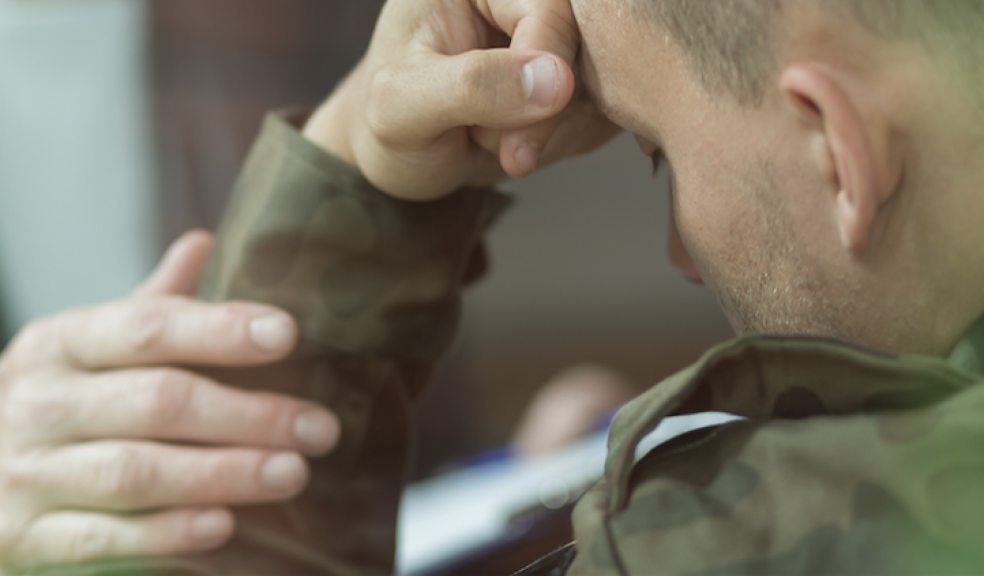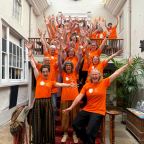
'Forgotten generation' of veterans
A “forgotten generation” of working age veterans, who have approached SSAFA (the Armed Forces charity) for help, is surviving on an average annual household income of just £13,800. Suffering from long-term physical and mental health problems they say they feel let down by their country.
Living in fear of debt, they are experiencing depression as a result of their circumstances with many believing they have been disadvantaged by their military service and feel poorly treated when they leave the Forces compared with veterans in the USA.
The plight of working age veterans is revealed in a major new research report by SSAFA, the Armed Forces charity, which surveyed nearly 1,000 veterans from across the UK who had been helped by the charity.
SSAFA’s report shines a rare spotlight on the everyday issues facing younger veterans. While attention has often been focused on the problems faced by older, retired veterans, working age veterans, particularly those aged under 45yrs, are likely to feel undervalued by society.
SSAFA’s research into veterans of working-age (16-64yrs) who have approached the charity for help highlighted some shocking findings. Top line stats follow:
75% have long-term physical or mental health conditions, illnesses or disabilities
61% are suffering from a formally-diagnosed mental health condition
one in two (54%) do not have enough money for essential items; more than four out of ten say they cannot afford daily living expenses
one in two (51%) are economically inactive, many of them not well enough to seek employment
85% believe the UK doesn’t give enough support to its veterans
78% think the US is more generous than the UK to veterans
four in ten believe they have been disadvantaged by their military service in relation to housing and or employment
more than four out of ten veterans who fought in Afghanistan reported being formally diagnosed as currently suffering with Post Traumatic Stress Disorder – the proportion rises to one in two for Gulf War veterans.
SSAFA’s report gives a voice to veterans on ‘The New Frontline” – the transition from the services to civilian life. Some are reliant on food banks while others have ended up homeless, in prison or have contemplated taking their own life.
SSAFA is calling for:
· welfare screening of potentially vulnerable servicemen and women before they leave the forces
· a new government funded mentoring scheme to support vulnerable veterans for at least their first year as a civilian
· The Ministry of Defence to improve its discharge processes to ensure that the service records of veterans are shared with the appropriate health and welfare professionals.
In 2005, 25% of the beneficiaries SSAFA supported locally across the UK were under 60 years of age, ten years later in 2015; this figure had risen to 45%.
Devon:
· In Devon the charity saw the number of vital home visits to the Armed Forces community carried out by its local volunteers, rise by 87% between 2014 and 2015.
· The number of cases where it supported the local Armed Forces community in Devon rose by 34% to 562 in 2015.
· SSAFA Devon branch has divisions in East Devon- Honiton & Axminster, Exeter inc Exminster, Mid Devon inc Crediton & Tiverton, North Devon & Torridge, South Hams, Teignbridge and West Devon, with its network of volunteers supporting serving personnel, reservists, veterans and their families in the county.
· The charity expects the increase in requests for help to continue to grow in the region due to an increase in younger veterans from more recent conflicts, and their families, coming forward for help with more diverse and complex welfare needs.
His Royal Highness Prince Michael of Kent GCVO CD, National President of SSAFA, writes: “This very timely report reminds us that we do not always see the human cost of the sacrifices made by our veterans. Some are suffering in silence, living in financial hardship or coping with ill-health. Not used to asking for help, they can too easily be forgotten.”
One of those interviewed in the report is David Swift (from St. Helens, Merseyside), who joined the Army aged 17, but found it near-impossible to adjust to civilian life when he left and ended up living on the streets. He said: “In the space of a year I went from being a healthy young man in a great regiment to someone sitting in a park wondering what the point of my life was. You need help, but your pride is too important to you. Sometimes you think your family would be better off without you. You feel worthless.”
Air Vice-Marshal David Murray, chief executive, SSAFA, says: “Our research has identified a cohort of veterans living in pretty desperate circumstances, often through no fault of their own. These men and women are not fulfilling their potential in civilian life; their plight is too easily ignored. Disappointingly, something that comes across loud and clear from our report is that many of the veterans helped by SSAFA do not feel valued. They have served our country – sometimes suffered for our country – and yet they feel forgotten. SSAFA knows that the transition period is a pivotal time for those taking their first steps back into wider society. We must identify vulnerable service leavers before they walk out of the barracks for the last time.”
In his foreword to SSAFA’s report, former Chief of the Defence Staff, Field Marshal The Lord Guthrie of Craigiebank, writes: “This report from SSAFA makes for sober reading. It identifies a group of veterans who feel undervalued and under-appreciated, who are slipping through the net when we, as a society, could prevent that happening. This research into the experiences of working age veterans is long overdue and SSAFA’s recommendations have my upmost support. We simply must do better for those who have served our nation.”











